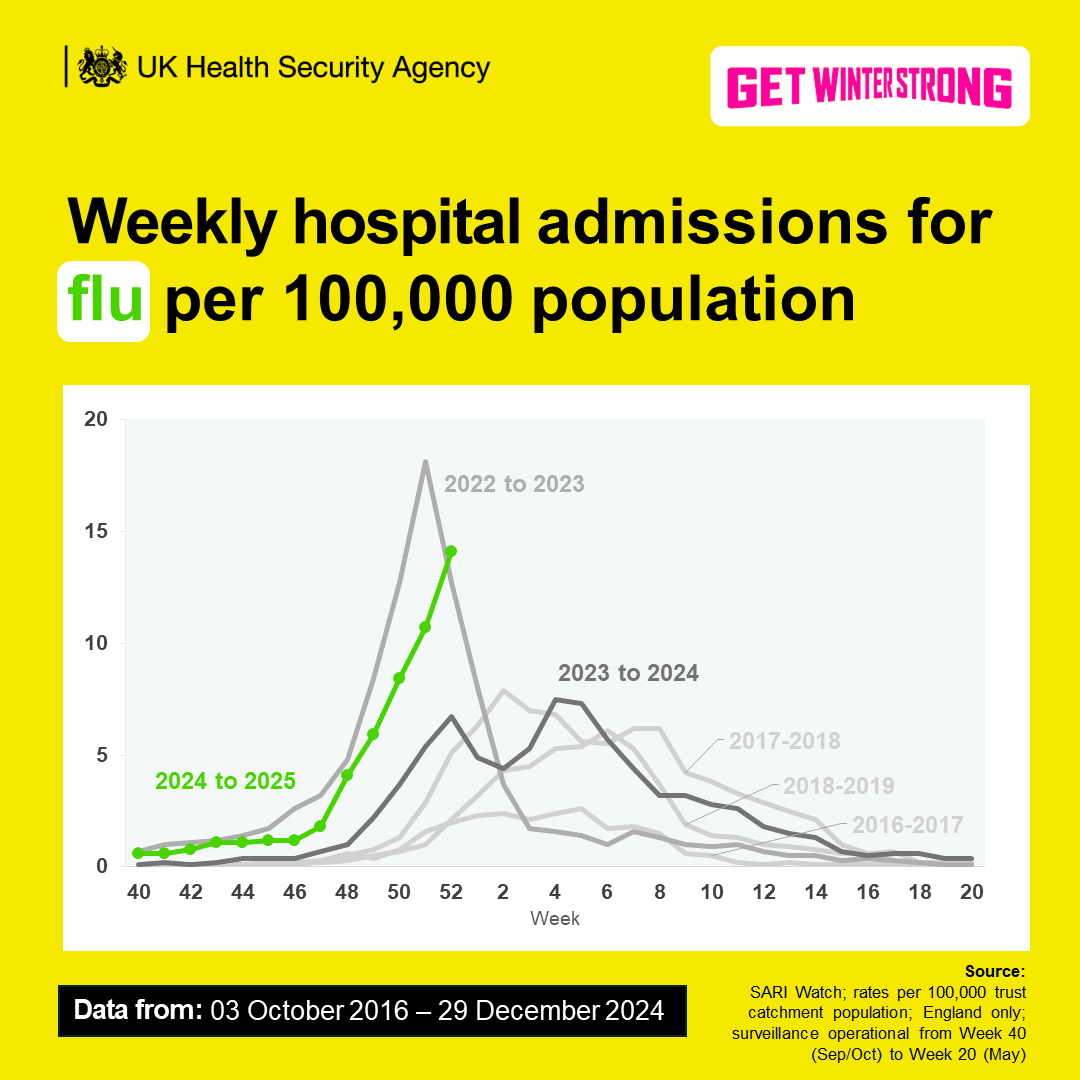As a surge in the number of patients with flu piles pressure on hospitals, health experts have warned this winter flu season is more infectious than last year’s.
Multiple hospitals across the UK issued critical incident alerts on Tuesday as their emergency departments became overwhelmed with the volume of people presenting with respiratory illness on top of normal accident and emergency pressures.
NHS national medical director Professor Sir Stephen Powis said there were 5,000 flu hospital cases at the end of last week - while the number of Covid, respiratory syncytial virus (RSV) and norovirus cases continued to rise.
This season’s figure for flu patients in hospital is the highest recorded for two years.
The UK Health Security Agency’s chief medical advisor Professor Susan Hopkins said last year’s flu season was relatively mild, and cases were much higher this season.
“Our latest data shows that flu is circulating at high levels, with case numbers and hospitalisations now approaching the numbers seen in the 2022-23 season,” she said.

Changing strains of influenza can lead to more patients
Dr Leon Peto, a consultant in infectious diseases and microbiology and clinical coordinator for the RECOVERY trial at the University of Oxford, said a season’s rise in flu cases can be can be triggered by the strains of the virus.
“There’s just a random element, and often seasonal flu is quite bad,” he told The Independent.
“The severity of each flu season is variable, even given the same amount of flu that’s around we might see different amounts of severe disease.”
Dr Peto said the influenza strains can change slightly year to year, and it was often those slight changes that caused the winter epidemics.
“That’s the slight change to the virus which, if you’re vulnerable, can be enough to cause nasty disease,” he said.

The UKHSA’s Professor Hopkins said the strain in circulation can also affect when cases peak.
“In some seasons we may see a second peak if a new strain becomes dominant, and it is therefore still important to take up the vaccine if you are offered,” she said.
Vaccines coverage can help ease flu pressure
Professor Penny Ward, a visiting professor in pharmaceutical medicine at King’s College London, said people who are most vulnerable to severe illness should be vaccinated to help bring down the number impacted.
“Vaccination does not prevent infection … but it does reduce the severity and likelihood of complications,” she told The Independent.
She said while the rate of vaccine coverage for over 65s was good, in other vulnerable groups coverage was much lower.
The latest NHS data on flu vaccinations from mid December shows 73 per cent of people aged over 65 had received a flu vaccine - but just 37.6 per cent of people aged under 65 and considered high risk including pregnant women and young children.
“Unfortunately with the rest of the high risk groups … it’s only about 32-35 per cent, and if you really want to curtail outbreaks you want a rate of about 80 per cent,” she said.
Professor Ward said people who have not had a flu vaccine could still get one to both protect themselves from serious illness and protect those around them.
“It’s never too late for people during the flu season to get their vaccines,” she said.







